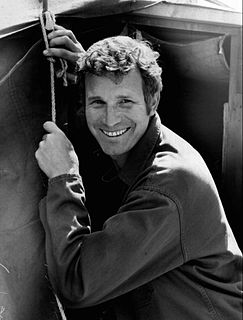A Quote by Sidney Hillman
I even believe in helping an employer function more productively. For then, we will have a claim to higher wages, shorter hours, and greater participation in the benefits of running a smooth industrial machine.
Related Quotes
Requiring the payment of higher wages will lead to a loss of some jobs and a raising of prices which drives companies to search for automation to reduce costs. On the other hand, those receiving higher wages will spend more (the marginal propensity to consume is close to 1 for low income earners) and this will increase demand for additional goods and services. Henry Ford had the clearest vision of why companies can actually benefit by paying higher wages.
Faced with such insecurity, labor unions seek a solution in demands for higher wages, shorter hours, pensions, and such things. But this approach takes monopolistic capitalism for granted, and accepts the unnatural division between property and responsibility as permanent. A much more radical solution is apt to come, and this may take either of two forms.
I have had the view that cutting wages is not the path to prosperity, and one of the great myths propagated about my attitude to industrial relations is that I believe in lower wages. I've never believed in lower wages. Never. Never believed in lower wages, I've never believed in lower wages as an economic instrument.
What Qatar chose is a system where a worker is owned by his employer. When your employer forces you to live in squalor, makes you work longest hours in extreme heat, doesn't allow you to change jobs, doesn't pay your wages on time, abuses you physically and psychologically, you have no way out, you can't leave. You are trapped.
We've long known that firms can pay higher wages if they spend less on workplace safety enhancement. Libertarians ask, "If a worker is willing to accept higher wages in return for his agreement to exercise greater caution while performing his job, why should the government prevent him from making that choice?" It's a rhetorically powerful question, yet it overlooks the fact that the agreement in question will have adverse effects on others.
f the injustice is part of the necessary friction of the machine of government, let it go, let it go; perchance it will wear smooth - certainly the machine will wear out... but if it is of such a nature that it requires you to be the agent of injustice to another, then I say, break the law. Let your life be a counter-friction to stop the machine. What I have to do is to see, at any rate, that I do not lend myself to the wrong which I condemn.
Today, our planet demands a more effective, efficient, transparent and representative United Nations; a UN where all societies of the world have greater participation. The UN must then, dare to change in order to improve. In Mexico, we firmly believe that the UN has all the powers to be more daring and to renovate itself.
We know that greater participation in our democracy will make our government more responsible and make elected officials more representative of the people we serve. Making that participation easier while improving the integrity and security of our elections is something we should all be able to support.
To really tackle poverty, politicians, activists, academics will all have to think outside their boxes, will have to start developing much more integrated approaches to these problems. And a large part of this will involve working out ways to push for living wages. Partly this will involve re-empowering the union movement, which has been massively weakened in recent decades. Partly it will involve a willingness to restructure tax codes to penalize companies that don't provide basic benefits and decent wages to employees.





































